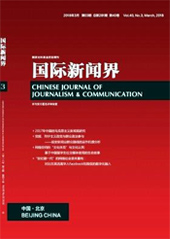Research
Liu Xiaoyan and Cui Yuanhang: The Government Discourse Authority and the Longitude-Latitude Logic of International Rules
Author: Time:2018-10-27The Government Discourse Authority and the Longitude-Latitude Logic of International Rules
Key words: international rules, government discourse power, longitude-latitude logic
Abstract:
This paper discusses the relationship between international rules and government discourse authority by taking time as "longitude" and country as "latitude". It examines the influence of diachronic changes, such as the changes of game mode between countries, the trend of globalization, the rapid development of information technology, on the relationship from the ordinate of time. And it also focuses on the influence of the national strength on the government discourse power in international rule and its mechanism from the horizontal coordinate of national strength. In addition, the paper discusses the role of government discourse power in the process of creating and implementing different types of international rules. Diachronically, from the industrial revolution to the World War II, international rules are only the result of national game. After World War II, the participants of international rules became more and more diverse, the interdependence between countries became stronger, the scope of international rules involved increased, and international rules gradually became the means of game among countries. And in the 21st century, international rules become the buffer mechanism for large-scale conflicts between great powers with the power transferring. In addition, developing countries and international organizations with limited strength also have new opportunities to expand their discourse power. In the construction and implementation of international rules, the negotiation modes among powerful countries, non-powerful countries, and between powerful countries and non-powerful countries, and national governments and other international actors are also more complex. Therefore, it shapes various modes and forms of government discourse power.
Published in Journal of Social Sciences, Issue 10, 2018
Author:
Liu Xiaoyan, Researcher, National Academy of Development and Strategy, Renmin University of China; Professor, School of Journalism and Communication in Renmin University of China; Researcher, Research Center of Journalism and Social Development, Renmin University of China.
Cui Yuanhang, lecturer of Political College of National Defence University, doctor of communication



